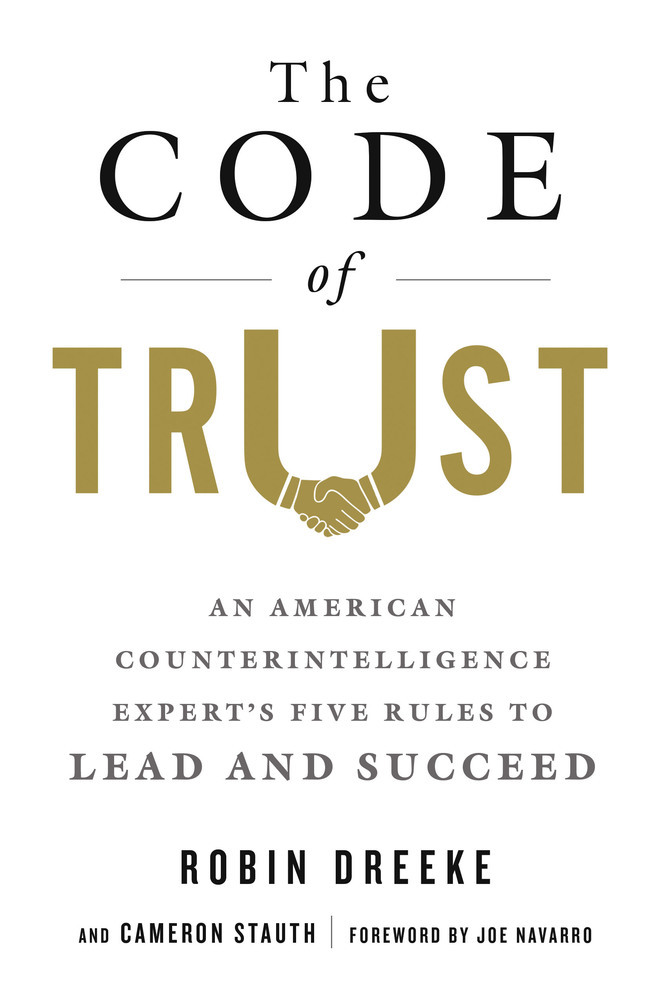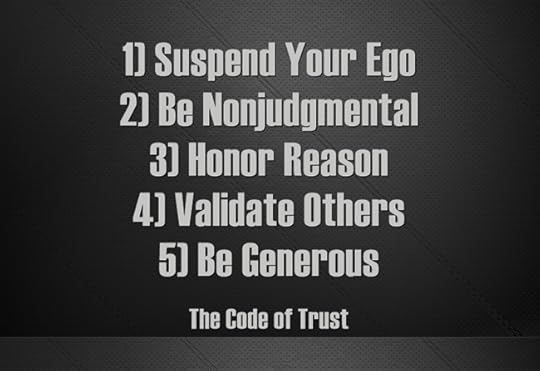What do you think?
Rate this book


384 pages, Kindle Edition
Published August 8, 2017
"how to assess others, and determine their needs, wants, desires, intentions, and fears. Once you understand that and establish trust, all else follows.
People want to be appreciated, cared for, loved, trusted, and respected. But they also want to be understood, and if you master the skills to achieve that, you truly become exceptional. You become one of those people we often read about—someone who is well respected, well liked and sought after. That is the power of trust.
this book is for anyone interested in understanding themselves, and more important, understanding others."
"To inspire trust, put others first."
"Success comes far faster when you inspire others to merge their goals with yours and forge ahead with you, in unison."
"I’ll be brief. Your time is valuable, I’m grateful for it, and I promise to finish as quickly as possible. This book is about you, not me."
"You don’t need to impress people—I later learned—if you put their needs ahead of your own. They’ll naturally trust you—and like you, too—because when trust comes first, people will feel good, and light up every time you walk through the door."
"Getting people to like you is not how you make them feel about you, it’s how you make them feel about themselves."
"Determine your own ultimate goal: the prize that justifies your sacrifices. Choose it carefully, and follow it faithfully. Don’t get distracted by lesser goals, no matter how pivotal they may appear at the time. Second: Learn the goals of others, and find valid, honest reasons to respect those goals. Third: Seek ways to align your goals with theirs. As you begin this process, look for ways to make their goals part of your goal, and your goal part of theirs. If you’re successful, you’ll achieve the power that only combined forces can attain."

Robin Dreeke is a 28-year veteran of federal service, including the United States Naval Academy, United States Marine Corps. He served most recently as a senior agent in the FBI, with 20 years of experience. He was, until recently, the head of the Counterintelligence Behavioral Analysis Program, where his primary mission was to thwart the efforts of foreign spies, and to recruit American spies. His core approach in this mission was to inspire reasonable, well-founded trust among people who could provide valuable information.
The Code of Trust is based on the system Dreeke devised, tested, and implemented during years of field work at the highest levels of national security. Applying his system first to himself, he rose up through federal law enforcement, and then taught his system to law enforcement and military officials throughout the country, and later to private sector clients. The Code of Trust has since elevated executives to leadership, and changed the culture of entire companies, making them happier and more productive, as morale soared.
"A great insight for anyone with an interest in social psychology and how it impacts interpersonal relationships." ―Phil Houston, CEO QVerity, 26 year veteran of CIA and co-author of the New York Times bestsellers Spy The Lie and Get The Truth
"To paraphrase Charles Dickens, it is the best of times, the worst of times, the age of wisdom, the age of foolishness, the spring of hope, the winter of despair. The Code of Trust is an antidote to the cynicism and fear of today. Robin Dreeke, my friend and colleague from the FBI, will take you on a delightful journey -- his journey--to more effective leadership at a time when we ache for such genuine skills in others." ―Reid Meloy Ph.D., forensic psychologist, author, and consultant to The FBI
"The foundation of leadership is trust. Robin shares his experiences as a United States Marine Corps officer and as a FBI behavioral analyst that allowed him to crack the code to build trusting relationships. This book is a must read for leaders and those who aspire to lead." ―Jack Schafer, author of The Like Switch